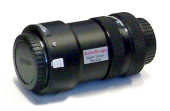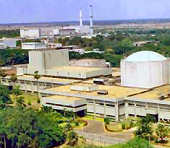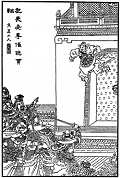 A criminal complaint was filed yesterday in federal court in Newark against Xu Bing, a Chinese national and resident of Nanjing, for attempted export of night vision equipment to China. Not surprisingly, the arrest was the result of a sting operation, one in which the undercover agents actually lured Mr. Xu to the United States.
A criminal complaint was filed yesterday in federal court in Newark against Xu Bing, a Chinese national and resident of Nanjing, for attempted export of night vision equipment to China. Not surprisingly, the arrest was the result of a sting operation, one in which the undercover agents actually lured Mr. Xu to the United States.
The story told by the criminal complaint starts when someone named “Sherley” from the Everbright Science & Technology Company, Ltd. in Nanjing contacted an undercover operation indicating an interest in purchasing an AstroScope 9350XL Gen 3 image intensified designed for use with Canon XL-series videocameras. Sherley indicated that a previous exporter had applied for a license to ship the 9350XL to Everbright but nonetheless asked the undercover company to arrange export of the equipment to China.
Thereafter an elaborate dance between the undercover agents and Sherley appears to have commenced. Although Sherley’s original plan was to have the undercover company ship the equipment to China, she ultimately told the undercover company that that Everbright was willing to pre-pay for the equipment and take delivery in the United States. The undercovers kept Shirley interested, even though they were obviously refusing to ship the equipment. How they accomplished this feat isn’t revealed in the complaint.
Finally, Everbright prepaid for the equipment and Mr. Xu flew to the United States to pick it up. While meeting with the undercover agents, Mr. Xu admitted that he knew that the night vision equipment couldn’t be legally shipped to the United States. The next thing he knew he was being read his Miranda rights and wishing, no doubt, that he’d stayed at home in Nanjing.

 Posted by
Posted by  Category:
Category: 


 The Bureau of Industry and Security (“BIS”) just released the
The Bureau of Industry and Security (“BIS”) just released the 
 I now have a copy of the criminal complaint filed against Qing Li and it answers a number of questions left open by
I now have a copy of the criminal complaint filed against Qing Li and it answers a number of questions left open by 

